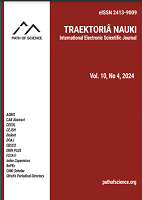Legal Implications of the Use of Digitalization of Online Land Registration
Legal Implications of the Use of Digitalization of Online Land Registration
Author(s): Sopia Nopitasari Rahim, Lalu Husni, Arba ArbaSubject(s): Media studies, Public Administration, Rural and urban sociology, ICT Information and Communications Technologies
Published by: Altezoro, s. r. o. & Dialog
Keywords: land; registration; digitalisation;
Summary/Abstract: Public perception of land services still needs improvement. In such conditions, changing the land administration system to electronic is necessary. The digitalisation of the land registration process can run well and adequately, so clear and consistent rules are needed both formally and materially. On the other hand, government agencies apply legal rules consistently to submit and obey the laws they make. So that certainty of land rights, subject rights, and objects of rights can be guaranteed. The type of research used is empirical, using statutory, conceptual, and legal sociology approaches. The sources of legal materials used are primary, secondary, and tertiary legal materials. The analysis used is qualitative. The research results show that digitised land registration will lead to a positive trend. It will significantly impact the community because it is time-efficient, transparent, and can be done independently without brokers. The community's obligation to visit the land office will reduce archival data. People don't need to fear being lost, burned, or flooded because an adequate system with an organised security system has stored it. Although the various obstacles that arise can undoubtedly be overcome through the development of human resources, the current technological development must continue when digital land registration is introduced.
Journal: Traektoriâ Nauki
- Issue Year: 10/2024
- Issue No: 5
- Page Range: 2011-2018
- Page Count: 8
- Language: Estonian

